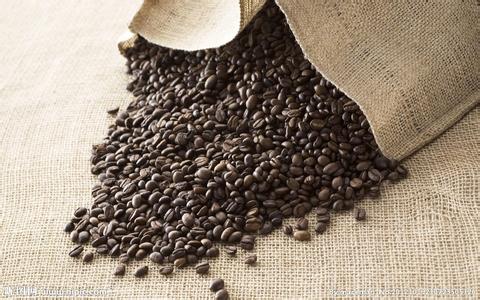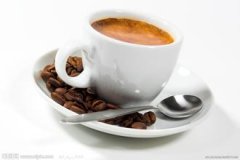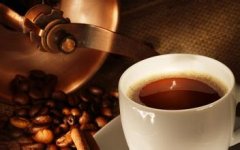Introduction to Korean Coffee Culture Coffee shops can be seen everywhere
There are so many coffee shops in Korea besides the churches and bars that can be seen everywhere. South Korea does not produce a single coffee bean, but it is one of the countries that drink the most coffee in the world, ranking 13th in the world as a coffee consumer. South Korea, with a population of nearly 50 million, imported more than 1.5 million bags of coffee in 2004, about 80, 000 tons, and consumed 1.6kg of coffee per capita per year, and this figure is still rising every year. South Korea has the sixth largest number of Starbucks stores in the world, just behind the United States, Canada, Japan, Britain and China. At the same time, Starbucks has also spawned numerous competitors and partners at home and abroad. Coffee bean, which first opened in 2001, has increased to 94 stores in just six years. Coffee beans (Coffee Bean), Pascucci, HOLLYS, Angel-In-Us and other large and small coffee shops open almost every day in South Korea.

Cafes in South Korea are everywhere, and you can drink coffee almost everywhere you want, streets, school restaurants, club stations, even inside and outside the bustling long-distance bus station. Many people think that coffee shops provide not only coffee, but also a culture of life that allows you to rest, chat or be in a daze in a relaxed and elegant environment. In a coffee shop, you can exchange a cup of coffee for communication between friends, talk about troubles, talk about study, get rid of boredom or relieve stress, and so on. There are also many kinds of cafes in Korea. There are many very design and artistic ones; there are West Point shops with coffee service; supermarkets also offer all kinds of coffee; and of course, there are many international coffee chains such as Starbucks. In South Korea, coffee prices in coffee shops are similar to those in China, ranging from 3000 won to 5500 won, equivalent to 20-40 yuan per cup. Go to the supermarket to buy a lot of small bags of coffee, the average calculation is only 50-100 won, about 0.3-0.6 yuan, should be regarded as very cheap. Many friends around me say that they don't drink coffee very much in China, but they drink more in Korea. It is easy to buy and there are more choices. A friend also said that the more he drank, the more dissatisfied he became. From the beginning, the 100 won coffee in the vending machine gradually became the coffee sold in the coffee shop, which sold for 5,000 to 6,000 won.

90% to 95% of the coffee imported by Koreans each year is used to make instant coffee. South Korea now ranks first in instant coffee sales, and almost all instant coffee is sold in South Korean supermarkets. The fact that many people drink instant coffee is closely related to the fast pace of Korean life. The daily mantra of Koreans is "come on!" Come on! " Pressure and time pressure make South Koreans can only use instant coffee to satisfy their taste buds, so the unique instant coffee culture naturally arises at the historic moment. Many people also feel that it is fashionable to walk in a hurry with a coffee cup on the way to work or school, as seen in American movies. Coffee cups in branded coffee shops have become ornaments such as earrings or hats.
Now many Korean coffee shops are also trying to provide a variety of services, the emergence of a variety of theme cafes, such as Cat Cafe, Dog Cafe, Divination Cafe and so on. In the dog coffee shop, there will be someone to take care of the puppy and provide services such as dog food, and the owner can rest assured to enjoy the coffee. The coffee shop of divination, as its name suggests, not only provides coffee, tea and cakes, but also "fortune telling", so it is now popular with young Koreans, and the business of the coffee shop is booming. Each divination cafe has its own unique way of telling fortune tellers, but fortune tellers mainly speculate on their clients' birthdays and faces to tell them what they may do and their marital status in the future. Some divination cafes are very open, while others are more private. Depending on the location of the cafe and the popularity of the diviners, the cost of divination ranges from 5000 won (about 30 yuan) to 100000 won (about 600 yuan).
As a matter of fact, cafes have not been developed for a long time in South Korea. They sprang up in the 1950s to cater to the leisure and entertainment needs of the US military stationed in South Korea after the war. At that time, most cafes were concentrated near US military barracks, but they were not called cafes. They were called Korean houses or teahouses. The word "teahouse" in Korean means teahouse and coffee shop. At present, there are many "teahouses" in Yanbian area of China, but most of them are taverns. Later, with the popularity of popular culture, the teahouse is also specific, the emergence of music teahouse, movie teahouse and so on, a large number of fashionable young people flock to the teahouse. At that time, many songs were also related to coffee, and coffee became more and more popular. In addition, after South Korea hosted the Seoul Olympic Games in 1988, the whole country tried to absorb Western culture, and at the same time, it also promoted South Korea's own cultural efforts to the whole world. Since then, coffee has officially become one of the ties between South Korea and the West. Koreans also consciously or unconsciously turn coffee culture into their own culture. The development of local coffee shops such as Angel in Us, local coffee shops and Holly's Coffee also speaks for itself. Of course, the rise of coffee shops in South Korea may also be because Koreans are stressed at work and have a fast pace of life. They need coffee every day to refresh and refresh themselves, and cafes have become the best inns to replenish energy or rest. Maybe Koreans like coffee, which is also related to the lack of varieties and high price of Korean tea. Mugi-cha is the most authentic Korean local drink. The tea sold in the supermarket is small-packaged and disposable, including yellow cypress tea and Xuanmi green tea, which is basically a local drink, but the price is much higher than coffee. So coffee is very popular in South Korea for a variety of reasons.
Important Notice :
前街咖啡 FrontStreet Coffee has moved to new addredd:
FrontStreet Coffee Address: 315,Donghua East Road,GuangZhou
Tel:020 38364473
- Prev

A comparison between Chinese Coffee Culture and Foreign Coffee Culture
The word "coffee" in Chinese coffee culture comes from the Greek word Kaweh, meaning strength and enthusiasm. Coffee tree is an evergreen shrub of Capsaceae. Daily coffee is made from coffee beans combined with a variety of cooking utensils, and coffee beans refer to the nuts in the fruit of the coffee tree, which are then roasted with appropriate roasting methods. In China, people like drinking coffee more and more. With
- Next

A brief talk on the Coffee Culture in Korea the favorite of lovers and office workers
Coffee (Coffee) (the word comes from a small town in Ethiopia called kaffa, and in Greek Kaweh means strength and passion. Tea, coffee and cocoa are called the three major drinks in the world. Coffee tree is a small evergreen tree of Rubiaceae. Daily coffee is made of coffee beans combined with a variety of cooking utensils, and coffee beans refer to coffee trees.
Related
- How did the Salvadoran coffee industry develop in Central America?
- What exactly does the golden cup extraction of coffee mean?
- The Origin of Coffee flower
- [2023 Starbucks World Earth Day] there are more meaningful things besides free Starbucks coffee!
- What kind of coffee is there in Spain? 9 Flavors of Spanish Coffee
- Aromatic African coffee| Kenya's coffee culture and historical production area
- Liberica Coffee Bean knowledge: the characteristics of Liberian Coffee beans of the three original species of Coffee beans
- The origin and formula of Spanish latte introduces the taste characteristics of Bombon coffee in Valencia, Spain.
- How to adjust the solution of over-extracted coffee
- What is the tasting period of coffee beans? What is the period of coffee and beans? How should coffee wake up and raise beans?

